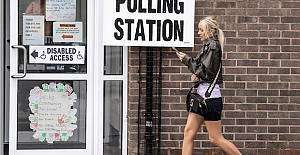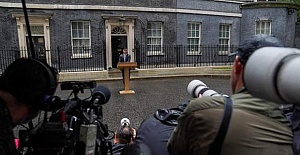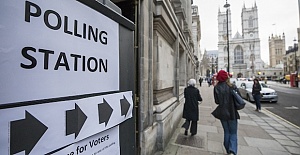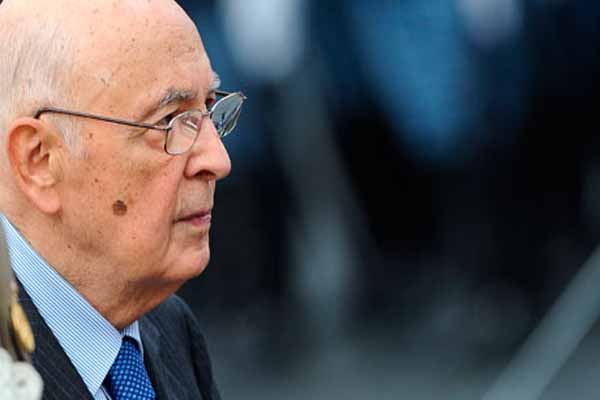Centre-left leader Pier Luigi Bersani has failed in his attempt to find a way out of Italy's political deadlock and President Giorgio Napolitano will now seek another solution, the president's palace said on Thursday. Bersani reported back to Napolitano on Thursday night after being given a mandate almost a week ago to see if he could muster enough support to form a government after the inconclusive election in February. Napolitano's office said Bersani, who took the largest share of the vote but failed to win a viable majority, had told him his talks with other parties had ended without resolution and the president would now assess other options "without delay".
Bersani said he had told Napolitano of "significant, positive elements of understanding" in the talks with groups including Silvio Berlusconi's centre-right bloc and the populist 5-Star Movement led by ex-comic Beppe Grillo.
"I also explained the difficulties deriving from objections or conditions which I did not consider acceptable."
The failure to reach a conclusion leaves Italy still stuck in political limbo more than a month after the election with the bank crisis in Cyprus fuelling fears of financial market turmoil that could threaten the stability of the euro zone.
Officials said Napolitano would start a new round of consultations with parties on Friday, beginning with Berlusconi's People of Freedom (PDL) party in the morning and ending with Bersani's Democratic Party (PD) in the evening.
A PD spokesman said Bersani had not given up on forming a government but the PDL poured scorn on the centre-left leader and said he had wasted a month in a fruitless bid that proved he did not have the numbers to govern.
Napolitano has said he opposes a snap new election to end the impasse but his options are severely limited if he is to avoid a return to the polls within months.
They include naming an outsider to head a technocrat government like that of outgoing Prime Minister Mario Monti or a cross-party political coalition but any government must be able to rely on a majority in parliament.
On Thursday, the main indicator of market confidence - the spread between Italian 10-year bonds and their safer German counterparts - widened to 350 basis points, some 30 points higher than the level seen before the Feb. 24-25 election.
WALL
Bersani had expressed hopes up to the last minute that he could overcome the difficulties but appeared to have run into a wall, particularly in his overtures to Grillo, whose movement says it will not support a vote of confidence in a government led by either the centre right or centre left.
Bersani has in turn rebuffed demands by Berlusconi that he form a broad left-right coalition, saying the scandal-plagued media magnate was too discredited to deal with.
Mindful of the risk of instability, Napolitano had insisted Bersani obtain firm guarantees of support from the other parties for a vote of confidence in parliament before he would agree to give him a firm mandate to form a government.
Bersani had tried to win support for a list of reforms that included measures on issues like political conflict of interests and corruption that were opposed by Berlusconi and he was never able to win enough guaranteed backing.
The scale of the task now facing Napolitano was underlined by Bersani earlier this week when he said that only someone who was "insane" would want to lead a government given the problems facing Italy.
The centre-left leader's struggle to reach an agreement showed how hard it will be even for any new technocrat cabinet to win support in the divided parliament, increasing the chances of a snap election.
An election can only be called after parliament elects a successor to Napolitano, whose term ends in mid-May. Constitutional rules prevent a president from dissolving parliament during the final months of his mandate.
Even this task is politically fraught because Berlusconi wants to pick the new head of state, something Bersani rejects.
Underlining the challenges for the next government, a senior Bank of Italy official and the head of Italy's statistics agency ISTAT both said the government's latest economic forecasts may still be too optimistic, even after being sharply cut last week.
Last week the government said the economy, in its longest recession for 20 years, would contract 1.3 percent this year, compared with a previous forecast of a 0.2 percent shrinkage.
However, ISTAT head Enrico Giovannini told a parliamentary committee hearing on Thursday the result may be worse than that with no recovery until the end of the year or early 2014.



 Advice for Enfield residents ahead of the General Election
Advice for Enfield residents ahead of the General Election Sunak promises tax cuts, economic stability, Conservative Party election manifesto
Sunak promises tax cuts, economic stability, Conservative Party election manifesto Ertan Karpazli, an independent MP candidate for the Enfield North constituency
Ertan Karpazli, an independent MP candidate for the Enfield North constituency Rishi Sunak announces a general election in a statement outside Downing Street
Rishi Sunak announces a general election in a statement outside Downing Street Residents of Spanish island of Mallorca launch initiative to thank tourists amid protests over mass tourism
Residents of Spanish island of Mallorca launch initiative to thank tourists amid protests over mass tourism Srebrenica Remembered, Lessons for Justice and Peace! YEE London held a reflective event
Srebrenica Remembered, Lessons for Justice and Peace! YEE London held a reflective event British Premier Keir Starmer to reset UK-EU relations with high-profile meetings
British Premier Keir Starmer to reset UK-EU relations with high-profile meetings Voters head to polls for UK general election
Voters head to polls for UK general election The Swiss official will take charge of the match between Real Madrid and Atalanta in Warsaw
The Swiss official will take charge of the match between Real Madrid and Atalanta in Warsaw Applications are now open for Walking and Cycling Grants London until 9 September 2024
Applications are now open for Walking and Cycling Grants London until 9 September 2024  Two Circles also appointed as exclusive media sales agency for UEFA Women’s Champions League
Two Circles also appointed as exclusive media sales agency for UEFA Women’s Champions League  England manager Gareth Southgate has resigned two days after defeat by Spain
England manager Gareth Southgate has resigned two days after defeat by Spain Joyce and Snell's planning application gets stamp of approval
Joyce and Snell's planning application gets stamp of approval The amount of bounce back loans fully repaid is just %13
The amount of bounce back loans fully repaid is just %13 Petrol prices higher than they should be, says RAC
Petrol prices higher than they should be, says RAC UEFA and Mastercard renew UEFA Champions League partnership
UEFA and Mastercard renew UEFA Champions League partnership

















